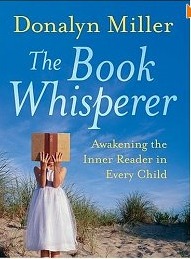 The English Education Secretary Michael Gove caused huge controversy this week (not for the first time) when he boldly proclaimed that every 11 year-old should be reading 50 books a year. Let us give him the benefit of the doubt, and assume he meant ‘wouldn’t it be wonderful if all 11 year-olds read 50 books a year’. The problem is that he has no idea how to bring that about, or even how to begin to encourage such a scenario, and being part of a government determined to close public libraries certainly isn’t going to help. The clue to his thinking is in the word ‘should’ and in the arbitrary choice of 50 as a target number of books. Is it based on the notion of one book per week with two weeks off for good behaviour? The ‘should’ of course is based on a model of education which is centred on instruction, telling young people what is good for them, rather than fostering a real love of reading, which takes time, dedication, a fairly detailed knowledge of the individual child’s likes and needs, and a love of reading on the part of the teacher.
The English Education Secretary Michael Gove caused huge controversy this week (not for the first time) when he boldly proclaimed that every 11 year-old should be reading 50 books a year. Let us give him the benefit of the doubt, and assume he meant ‘wouldn’t it be wonderful if all 11 year-olds read 50 books a year’. The problem is that he has no idea how to bring that about, or even how to begin to encourage such a scenario, and being part of a government determined to close public libraries certainly isn’t going to help. The clue to his thinking is in the word ‘should’ and in the arbitrary choice of 50 as a target number of books. Is it based on the notion of one book per week with two weeks off for good behaviour? The ‘should’ of course is based on a model of education which is centred on instruction, telling young people what is good for them, rather than fostering a real love of reading, which takes time, dedication, a fairly detailed knowledge of the individual child’s likes and needs, and a love of reading on the part of the teacher.
If anyone with access to Mr Gove happens to read this post, perhaps next time you see him you could lean over and whisper in his ear the title of The Book Whisperer by Donalyn Miller. Were he to add this to his reading list – assuming he himself reads at least 50 books a year – he might begin to understand the effort and dedication it takes on the part of those teachers who are already developing young readers and pay them a bit more respect. However, if he is determined to turn young people off reading for life simply by imposing targets, here are a few more pieces of advice he might give any teacher trying to create reluctant readers:-